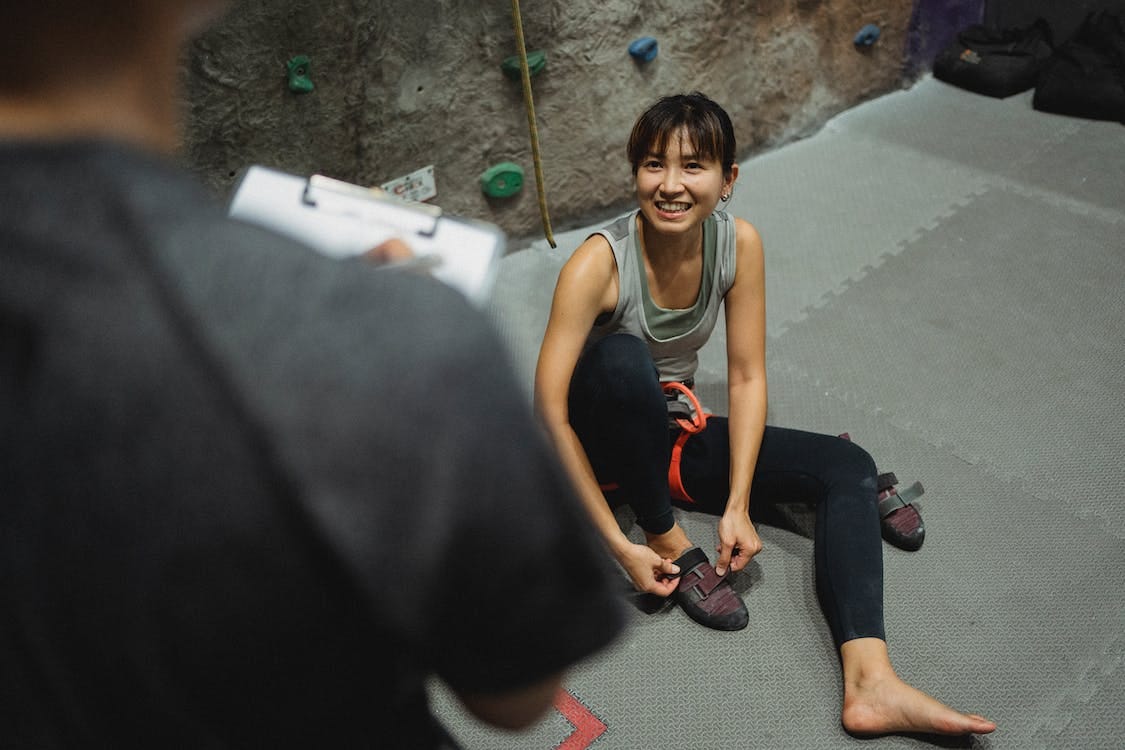Resilience 101: Seek out Challenge
Can you expect to get fit when the trainer is the only one doing the work?
Suppose you hired a personal trainer, who advised you on meal planning, workout scheduling and specific exercises to perform. You listened and learned but never took the steps to do any of it, because, well, it’s hard. Your muscles might get sore, you might feel a pang of hunger every now and then, you might have to forgo some online scrolling when lifting weights. Would you, or should you, be surprised if after six months or a year of not doing what you had learned, of not engaging in the hard work, you were still out of shape? Of course not.
Unfortunately, in many areas of life, we do just this. We fail to educate, prepare, and support individuals for fitness in life by impeding their ability to develop resilience that enables one to deal with the stressors and challenges that accompany living life. By removing hardship and the expectation that individuals push through challenges, we undermine rather than support mental well-being, fulfillment and life satisfaction. We cannot build our fitness without putting in the hard work. So too is strain and struggle required to develop resilience, where we can find meaning and growth from even the most difficult ordeal. Rather than avoiding challenge, we should seek it out and embrace it.
Resilience has been gaining popularity in discourse, becoming a buzzword for organizations and individuals, particularly with reference to weathering the pandemic and its associated stressors and losses. The transition to work from home, social distancing and remote education all represented sources of significant upheaval in people’s daily lives, requiring major changes coupled with the removal of many coping resources (e.g., in person social interaction) and leading to strain on individuals and their relationships. But, like the vapidity of most buzzwords, those who use it often lack a true understanding of what resilience means and how to achieve it.
Psychologists who study resilience highlight that one cannot become resilient unless one has gone through hardship (Southwick et al., 2014). This is important to consider, given that much of the current programming that is intended to promote well-being and enhance resilience is designed to remove rather than support moving through the necessary struggles required for resilience to manifest.
Importantly, this is not to argue that entities and individuals should needlessly create obstacles or fail to support those in need. But, an overemphasis on identifying and eliminating stress and challenge coupled with a mindset that views these experiences as inherently problematic rather than useful creates harm by promoting short-term ease at the expense of hardiness.
Every challenge faced provides an opportunity for growth and we deprive others when we don’t offer this. For example, many university instructors have faced pressure to make lecture attendance optional and to make recordings available. On-face, this seems like a kind and accommodating policy. However, without strong pressure to do the harder thing, many students choose not to. Universities thus undermine the development of effective time management and incentivize poor learning strategies. Students who know they can access and review the material at the last minute are less likely adjust their sleep and activity schedules to make meetings on time. They are also less inclined to engage actively and consistently with material.
Further, instructors are told not to post full lectures, but to break things down into bite size chunks to make them more accessible and use these types of materials in place of reading. Students are not, then, challenged to increase their ability to sustain attention, fully engage cognitively, self-regulate and overcome boredom. Similarly, encouragement to constantly provide flexibility with respect to deadlines makes deadlines meaningless and removes any consequence of failing to fulfill one's obligations on time.
None of these accommodating changes to educational practice will support student success in the workplace, where tardiness, lack of attention, and missed deadlines are likely to result in unemployment. The consequences of not expecting individuals to hone their efficiency, cultivate self-management and honor commitments carries over as well. For example, the call from many organizations to return to work has been met with endless whinging. Employees, who often come from an undemanding educational environment and have acclimated to a work climate that makes countless accommodations, no longer recognize that working requires some amount of self-adjustment.
Again, this is not to argue that universities, organizations, and others should not be sensitive to the potential stressors individuals face, particularly given that research suggests a variety of factors, including genetics, personality, family environment and even culture, influence the way individuals respond to and cope with stress. However, there must be a balance between offering support and fomenting challenge.
Because choosing that which is hard is in itself difficult, we should structure situations to support the harder choice. Reducing expectations and making too many accommodations are counterproductive to this aim. A fitness trainer who only asked their client to lift the lightest weights or sustain activity for the shortest amount of time would be wasting their time. Sustaining dedication to a workout program is hard for many and so trainers provide clients with the encouragement and accountability necessary to keep them on track. We should work harder to be the resilience trainers for individuals in our own lives and seek out experiences and relationships with those who will do the same for us in return.
Current trends have moved us away from resilience cultivation in favor of stress avoidance. It is important that individuals and institutions take the time to evaluate whether we are working to undermine or promote a resilience-enhancing environment. By tempering the shift toward hardship avoidance with a renewed interest in providing others with meaningful challenges and a mindset that welcomes these experiences, we will all be better positioned for individual and organizational success.
You can learn more about cultivating resilience from my talk on the topic or at my website.






This is EXACTLY why I did not become a clinical psychologist - I started in that direction and after my first internship during my master's level training I quit! Clients that I saw were completely unwilling to do the hard work so what was the point? I figured this was not for me. I had no patience with that.